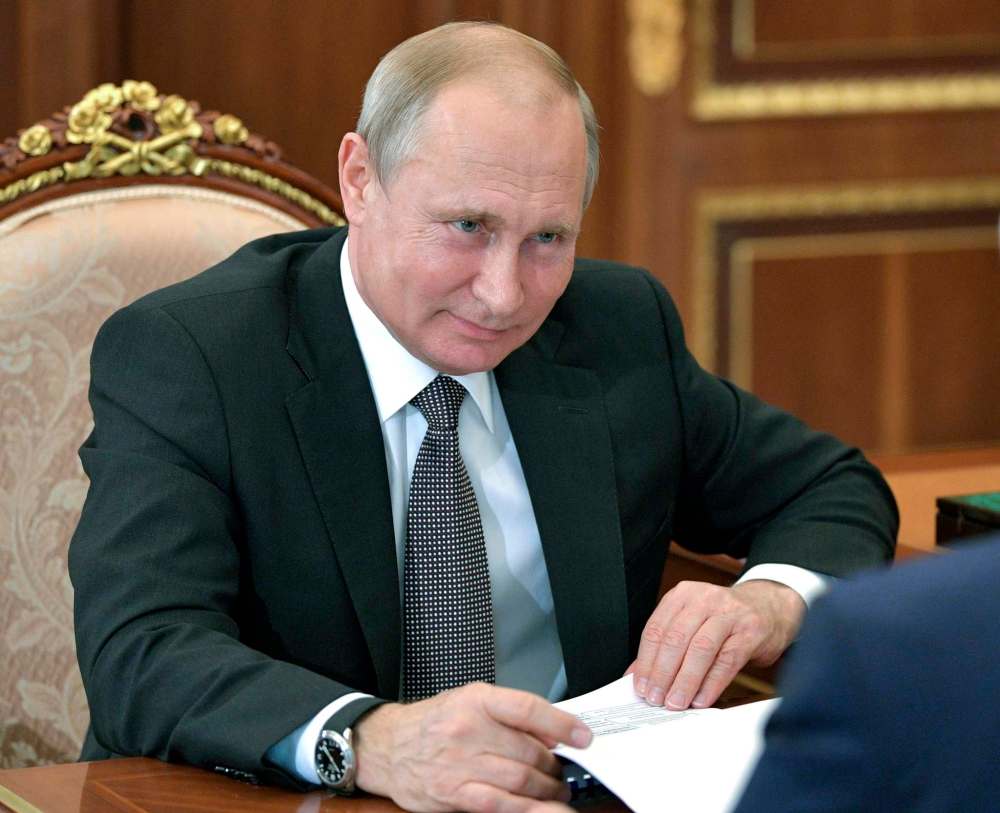Brochure reflects Europe’s unease with Russia
Advertisement
Read this article for free:
or
Already have an account? Log in here »
To continue reading, please subscribe:
Monthly Digital Subscription
$0 for the first 4 weeks*
- Enjoy unlimited reading on winnipegfreepress.com
- Read the E-Edition, our digital replica newspaper
- Access News Break, our award-winning app
- Play interactive puzzles
*No charge for 4 weeks then price increases to the regular rate of $19.00 plus GST every four weeks. Offer available to new and qualified returning subscribers only. Cancel any time.
Monthly Digital Subscription
$4.75/week*
- Enjoy unlimited reading on winnipegfreepress.com
- Read the E-Edition, our digital replica newspaper
- Access News Break, our award-winning app
- Play interactive puzzles
*Billed as $19 plus GST every four weeks. Cancel any time.
To continue reading, please subscribe:
Add Free Press access to your Brandon Sun subscription for only an additional
$1 for the first 4 weeks*
*Your next subscription payment will increase by $1.00 and you will be charged $16.99 plus GST for four weeks. After four weeks, your payment will increase to $23.99 plus GST every four weeks.
Read unlimited articles for free today:
or
Already have an account? Log in here »
Hey there, time traveller!
This article was published 16/07/2018 (2668 days ago), so information in it may no longer be current.
In late May, every Swedish household received a booklet outlining what might happen and what they should do if their country is attacked.
Labelled “If Crisis or War Comes,” it asked the country’s entire population to consider, “What would you do if your everyday life was turned upside down?”
It had information on how electricity and telecommunications could be lost; how supply lines might be disrupted so people would lose access to food, running water and fuel; and where to go to seek shelter. It had a lengthy checklist of household items to keep on hand, including blueberry soup, candles and a battery-powered radio.

It also reminded everyone that any of them between the ages of 16 and 70 can be called up by the government to assist in various ways in the event of war, or the threat of war.
“We must be able to resist various types of attacks directed against our country,” the brochure says.
Canadians would be puzzled to receive such a brochure in 2018, and would immediately ask why it was sent.
The official reason in Sweden is that it would help residents become better prepared for everything from serious accidents, extreme weather and IT attacks, to military conflicts.
But unofficially, Swedes knew the real reason: Russia.
Russian President Vladimir Putin’s aggressive actions in the Crimea, Ukraine and elsewhere have created unease even in a peace-loving country that has not been at war in more than 200 years.
The unease is prevalent across Europe, based on long experience and knowledge of history.
U.S. President Donald Trump is stoking the unease with favourable comments about Putin, with whom Trump is meeting today in Helsinki, and suggestions that it’s easier to deal with the Russian leader than with traditional American allies such as Germany.
Europeans know that it is never easy to deal with Russia. They know any concession to Putin, such as recognizing the Russian occupation of Crimea, would only encourage, not stop, the Russian leader from his expansionist ambitions.
North Americans have always understood the Soviet Union, and more lately Putin’s Russia, as a distant threat. Europeans experience it much differently. As German Chancellor Angela Merkel, who grew up in East Germany, pointed out: “I have witnessed this myself, that a part of Germany was controlled by the Soviet Union.”
After all, Russia is not simply a nuclear threat in Europe; it is a neighbour, and one with a lot of history of conflict.
When Mikhail Gorbachev was in Winnipeg in 2012, he met my wife, a Swede, and immediately brought up Poltava, a reference that left everyone but the two of them scratching their heads.
Poltava was a battle in 1709 in present-day Ukraine, in which the Russian forces of Peter the Great defeated the Swedish army, cementing Russia’s place as the leading nation of northeastern Europe.
Hmmm, a battle by Russia for control in Ukraine. Sound familiar?
Swedes do not forget their history, either. Despite not going to war for two centuries, the country is always on a low-level state of readiness.
Walk into the basement of most apartment buildings in the country and you will quickly realize you are entering a “skyddsrum” — a bomb shelter with secure doors and emergency lighting. Many community centres, schools and other public buildings are similarly equipped, giving the entire population access to shelter in the event of war.
Warning sirens are still tested regularly across the country, blasting out exactly at 3 p.m. on the first Monday of March, June, September and December.
Each time they sound, they are a reminder of why it’s important to be careful when dealing with Russia — a lesson Trump would be well-advised to learn.
Bob Cox, publisher of the Winnipeg Free Press, has visited Sweden frequently over the past 26 years.

